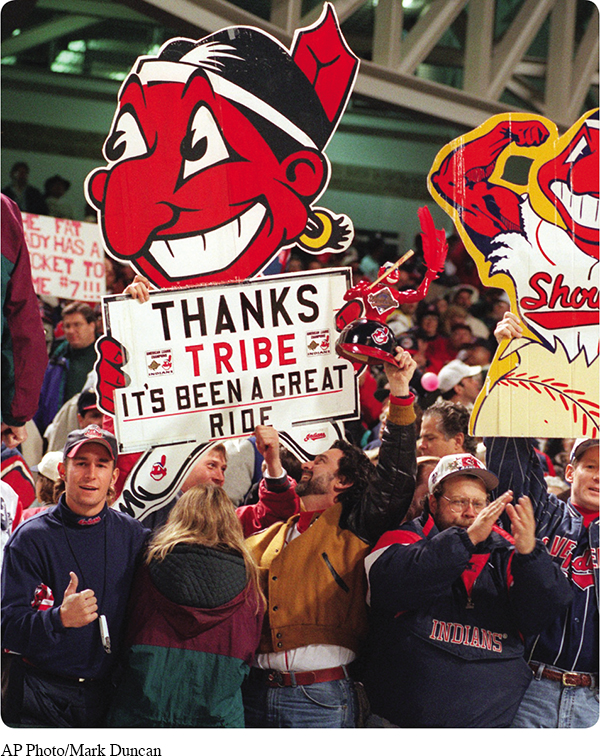See the additional resources for content and reading quizzes for this chapter.
CHAPTER18DEBATE Should Controversial Sports Mascots Be Replaced?

Page 655
The controversy over sports mascots that some consider offensive is not new. Encouraged by the civil rights era’s increasing emphasis on tolerance, equality, and diversity, the National Congress of American Indians began a campaign against these stereotypes in 1968. In the late 1960s, Dartmouth College became one of the first colleges to drop its Indian mascot. The school was responding to concerns expressed by its Native American undergraduates, who found the war-
The broad contours of the debate have remained the same throughout the decades. For their detractors, these mascots evoke offensive, dehumanizing ethnic stereotypes and the specter of historical oppression. Viewed in this light, the Cleveland Indians’ red-
Page 656
The two essays that follow explore the key issues of this debate. Jack Shakely acknowledges that the subject of Indian sports mascots may seem “trivial” on the surface, but he argues that these stereotypes are an assault on human dignity. For Ellie Reynolds (who, like Shakely, is Native American), the controversy surrounding the continued use of Indian mascots seems overblown, fueled by political correctness; therefore, she opposes a local bill that would change longtime sports mascots.